We live at a great time for those who want to learn about healthcare. Quality learning and resources are accessible to more people, thanks to the Internet. But the sheer number of online medical certification courses available right now can be overwhelming. And you’re busy. You don’t want to waste your time.
Do you want to know which online training courses will help you specifically? Should those with certain professional goals or in specific careers take this one or that? How do you spot medical courses that offer you accurate and up-to-date information? Let’s find out!
Why Get Medical Certifications Online?
While many medical certification courses will require some class and lab time, you can certainly get several medical certifications 100% online. And you absolutely should. Adding medical certifications to your professional license, whether you’re a nurse, paramedic, or 4th-grade teacher has many benefits:
- Beef up a resume
- Provide an extra reason you deserve a promotion or higher pay in a competitive workplace
- Demonstrate commitment to health and wellbeing of customers/clients/patients
- Present yourself as a life-long learner
- May help you get past the dreaded Applicant Tracking System (ATS) used by some employers to automatically reject applicants without ever looking at their resume (Indeed.com)
- Learn marketable skills you can use in real life
- Increase personal and professional confidence and self-esteem
- Give you peace of mind. You know what to do during a medical emergency.
- Work more effectively with your team
Can I Really Get Quality Medical Certifications Online?
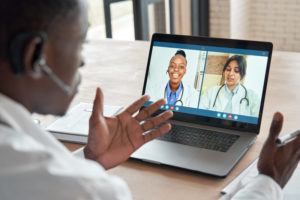 Let’s face it. A lot has changed in the past 10 years in the realm of online education. What was once seen as fringe and sub-par learning is now a central and important part of medical education.
Let’s face it. A lot has changed in the past 10 years in the realm of online education. What was once seen as fringe and sub-par learning is now a central and important part of medical education.
These days, online medical certification course providers can be verified, peer-reviewed, and approved by quality assurance organizations like the Joint Commission and Trust Pilot. Educational organizations can offer self-paced resources that are more student-centric than their classroom counterparts.
It’s a fact.
When students guide their own learning, they’re more engaged, have higher information retention, and feel more motivated to learn (NIH.gov). While you certainly can’t learn everything you need to know to be a doctor on the Internet, online medical courses have a lot going for them.
What Medical Certifications Can I Get Online?
Here are the top online medical certification courses to get in 2022:
- CPR and First Aid – Learn how to perform bystander CPR, maintain the Chain of Survival, use an Automated External Defibrillator (shock the heart), and provide first aid during common minor medical emergencies.
- Basic Life Support (BLS) – Learn ILCOR standards for working with a medical team during a life-threatening medical emergency to resuscitate and support life.
- Advanced Cardiac Life Support (ACLS) – Develop a more in-depth understanding of advanced life-saving and supporting methods according to ILCOR standards and how to work effectively with a medical team during a life-threatening medical emergency
- Pediatric Advanced Cardiac Life Support (PALS) – Increase your understanding of infant and child-specific life-saving and supporting techniques and how to work effectively with a team to help a child during a life-threatening medical emergency.
- Bloodborne Pathogens – Know how to manage potentially infectious materials and follow OSHA-approved bloodborne pathogen guidelines.
What Is the Best Online Medical Certification Course to Take?
What Is Your Current Profession or Career Goal?
If you are a medical professional or training to become one, some of the best online medical certification courses are those that qualify as Continuing Medical Education Credits. When renewing your license, you’re required to have a certain number of these credits. Plus, these medical courses provide you with useful skills you can use on the job within your scope of practice.
And getting certain certifications can also make you more marketable in healthcare for school program placement, promotions, raises, and coveted job placement.
Do You Need a Certification or Re-Certification?
If you’re taking this medical course for continuing education credits, then you’ll want to make sure you need the kind of credit this course offers you. Medical licenses often limit the credits you can receive for a certain type of course.
Do You Need Multiple Certifications?
Often, you can save money and time by purchasing a certification bundle from an organization. For example, Save a Life offers 2 and 3-course bundles. Get ACLS + PALS certification, for example, for one low price. You’ll earn AMA Category 1 credits for both these courses and knock out the continued education requirement for license renewal.
Will You need to Get Certified on an Ongoing Basis?
You can also choose the “Recertification for Life” options when selecting medical courses.
Are You a Healthcare Professional or a Non-healthcare Professional?
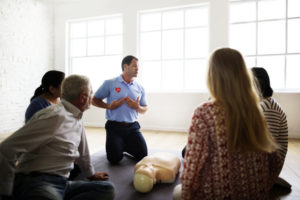 Most online certification courses will provide you with marketable work skills and a useful understanding of how medical professionals save lives. However, if you’re not a doctor, they don’t give you permission to perform advanced medical procedures. So this may influence what courses you choose to take.
Most online certification courses will provide you with marketable work skills and a useful understanding of how medical professionals save lives. However, if you’re not a doctor, they don’t give you permission to perform advanced medical procedures. So this may influence what courses you choose to take.
As an example, an Advanced Cardiac Life Support (ACLS certification) will be most beneficial for a doctor, nurse, paramedic, etc. This isn’t to say that others can’t benefit. However, if you’re not a medical provider, you may want to start with CPR, Bloodborne Pathogens, and Basic Life Support. Then keep learning with an impressive ACLS certification.
Do You Work with Children?
If you are in the medical field and work with children, then Pediatric Advanced Cardiac Life Support (PALS) would be another online medical course to take along with ACLS certification.
If you are a teacher of young people, you might also benefit from PALS. But it’s an advanced course, so start by getting your CPR and First Aid certificate.
Are You At Risk of Exposure to Blood or Other Potentially Infectious Materials?
Whether you’re a doctor or not, Bloodborne Pathogens is a great medical and occupational safety course anyone can benefit from. The Occupational Safety and Health Administration (OSHA) requires annual bloodborne pathogen training for employees who are at risk of exposure, such as construction, body art, manufacturing, housekeeping, and healthcare.
Do You Work with People Who Suffer from Dangerous Allergies?
Almost anyone could be in this situation. Someone with a peanut allergy in a grocery store could accidentally become exposed to a broken jar of peanut butter, sending them into anaphylaxis. A grocery clerk who knows what to do would be a valuable member of the team. When employees go above and beyond an employer is worth work for notices.
Do You Work in a Place Where There Is a Risk of Burns?
A First Aid course is a must. Your swift action could both reduce painful suffering and the more lasting effects of an untreated burn.
What Medical Certificate Can I Get in Three Months?
You can complete many online medical certifications in less than one day. However, they’re self-paced, so take more time if you need to. Here are some examples of how fast you can get a medical certificate.
- CPR, AED, and First Aid Certification Course – 4-6 hours
- BLS Certification Course – 6-8 hours
- ACLS Certification Course – 8-12 hours
- PALS Certification Course – 8-12 hours
- Bloodborne Pathogens Certification Course – 1-2 hours
And recertification is even faster.
After completing the course, you may need to review the study guide before taking the certification test. The time required for this review depends on your understanding of the topics before the course and how well you retain information.
Since you have unlimited re-takes until you pass, if you’re in a hurry, you could take the test first, identify your learning gaps, then go back and focus on areas you struggled with.
We should note that if you were to take any of these courses in a classroom, you would need to invest a lot more time–perhaps a couple of full Saturdays. An instructor generally has to teach at the rate the slowest person in the class learns. Some people naturally learn faster than others, so this can really hold you back.
What Is the Quickest Medical Certification I Can Get?
The quickest medical certification course is Bloodborne Pathogens. This one is both quick and highly valued in many industries.
It doesn’t matter what industry you’re in, knowing how to manage potentially infectious materials looks great on a resume and could protect you from serious harm. That’s especially true during and post-pandemic when businesses need to take extra precautions to keep employees and customers safe.
What Is the Easiest Medical Certification Course for a Non-Medical Professional?
By far, the easiest–and most beneficial– online medical certification course for someone not in the medical field would be CPR or First Aid. And you can take these as a single CPR & First Aid Certification course through Save A Life.
In the case of both CPR and First Aid, you learn practical skills anyone can use and is likely to need to use several times during their lifetime. Even teens can and should learn useful life skills like:
- How to provide CPR until emergency help arrives
- How to treat a burn
- What to do when someone can’t breathe
- What to do during an allergic reaction or asthma attack
- How to identify cardiac arrest or respiratory distress
- How to manage an emergency involving a child
- Proper first aid hygiene
- What you need to keep in your first aid kit
- How to use an automatic external defibrillator
Who Should Take Online Medical Certification Courses
Those who benefit from online medical certification courses typically fall into two categories: medical professionals and non-medical professionals who may need to manage a medical event until emergency responders arrive.
Medical Professionals
Medical professionals may include but aren’t limited to:
- Doctors
- Nurses
- Paramedics and EMTs
- Home health and hospice
- Physical therapy
- Holistic or natural medicine practitioners
- Dentists and Dental hygienists
- Nursing students
Non-Medical Professionals
Non-medical professionals might include:
- Medical industry housekeeping or care
- Teachers and Daycare professionals
- Police officers
- Firefighters
- Truck Drivers
- Retail
- Grocery
- Restaurant, nightclub, and bar professionals
- Sports and entertainment professionals
- Construction
- Manufacturing
- Warehouse
Which Group Should Take Which Courses?
Which category you fall into may also determine which courses you get the most out of. For example, most medical professionals need advanced medical certifications like ACLS and PALS. But these may be too advanced for the average non-medical professional who is unlikely ever to need to perform advanced medical procedures.
With that said, many non-medical professionals take these more advanced medical certification courses because they’re curious about how medical professionals work during a medical emergency. They also want that sense of accomplishment you get when you pass an advanced medical certification test.
But for more non-medical professionals, CPR, First Aid, Bloodborne Pathogens, and maybe Basic Life Support will be the most beneficial. Every medical professional should take these plus the more advanced courses.
What Should I Look for In Online Medical Training?
First of all, look at the reviews on a site like Trustpilot to see what kind of experience other online students have with the course. Nearly 1 million lifesavers have taken medical courses with Save A Life, so finding reviews is easy.
Next, ensure the organization providing the training has some quality control in place. For example, Save A Life is Joint Commission (JCAHO) Compliant and follows ILCOR standards.
If you plan to earn continuing medical education credits, it’s nice to see a high acceptance rate, such as the 98% Save A Life has earned internationally.
Beyond that, assess the teaching style, format, and website responsiveness. We recommend a course that lets you test drive the course materials before you pay for anything. Preview our ACLS course today and share your feedback with us.
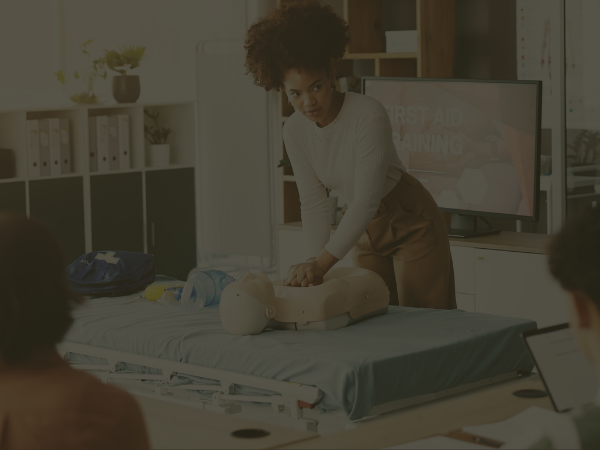
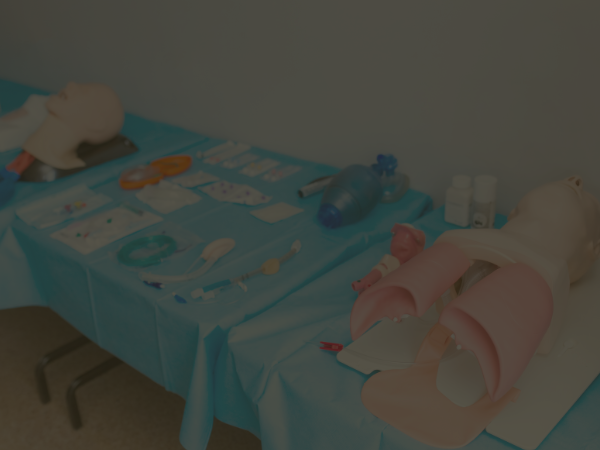



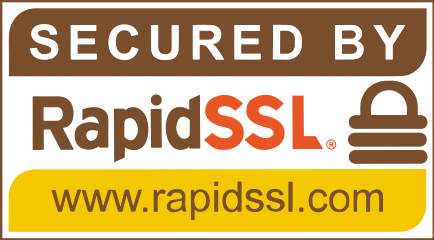
I can’t wait to take advantage of this once in a lifetime opportunity to improve myself after learning Standard First Aid.